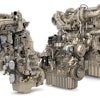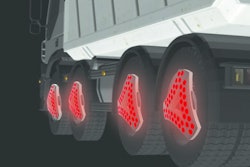The President has announced new steps with the private sector to strengthen the manufacturing sector, boost advanced manufacturing, and attract the good paying jobs that a growing middle class requires. The President has announced the selection of a North Carolina headquartered consortium of businesses and universities, led by North Carolina State University, to lead a manufacturing innovation institute for next generation power electronics.
In last year’s State of the Union address, the President proposed a series of three new manufacturing institutes that the administration can create using existing resources - this is the first of those institutes.
Each institute is designed to serve as a regional hub designed to bridge the gap between applied research and product development, bringing together companies, universities and other academic and training institutions, and Federal agencies to co-invest in technology areas that encourage investment and production in the U.S.
Read the full press release from the Dept. of Energy to learn more about the innovation institutes and President Obama's initiative for more U.S.-based clean technology manufacturing.
The new manufacturing innovation institute announced in North Carolina is focused on enabling the next generation of energy-efficient, high-power electronic chips and devices by making wide bandgap semiconductor technologies cost-competitive with current silicon-based power electronics in the next five years. These improvements will make power electronic devices like motors, consumer electronics, and devices that support our power grid faster, smaller, and more efficient. The winning team, led by North Carolina State University, brings together a consortium of leading companies that included some of the world’s leading wide band gap semiconductor manufacturers, leading materials providers, and critical end-users like John Deere and Delphi with universities on the cutting edge of technology development and research, all in a vibrant and entrepreneurial region that can serve as the foundation for ongoing U.S leadership in this important technology. The Department of Energy is awarding $70 million over five years, matched by at least $70 million in non-federal commitments by the winning team of businesses and universities, along with the state of North Carolina.
The Next Generation Power Electronics Innovation Institute
The Next Generation Power Electronics Institute will provide the innovation infrastructure needed to support new product and process technologies, education, and training to become a global center of excellence for the development of wide bandgap semiconductor devices and industry-relevant processes. The DOE-supported manufacturing innovation institute’s headquarters will be located on North Carolina State University’s Centennial Campus. The university will also host some of the institute’s shared research and development facilities and testing equipment, as well as workforce development and education programs.
In the last century, silicon semiconductors transformed computing, communication and energy industries, giving consumers and businesses more and more powerful devices that were once unimaginable. Today, as we reach the limits of silicon-based electronics for some critical applications, WBG semiconductors offer a new opportunity to jumpstart the next generation of smaller, faster, cheaper and more efficient power electronics for personal devices, electric vehicles, renewable power interconnection, industrial-scale variable speed drive motors and a smarter, more flexible grid.
The institute will provide shared facilities, equipment, and testing and modeling capabilities to companies across the power electronics supply chain, particularly small and medium-size manufacturers, to help invent, design and manufacture new semiconductor chips and devices. The institute will also pair chip designers and manufacturers with large power electronic manufacturers and suppliers, such as John Deere and Delphi, to bring these technologies to market faster and will offer training, higher education programs and hands-on internships that give American workers the skills for new job opportunities and meet the needs of this emerging and globally competitive industry.
Compared to silicon-based technologies, wide bandgap semiconductors can operate at higher temperatures and have greater durability and reliability at higher voltages and frequencies – ultimately achieving unprecedented performance while using less electricity. These technologies can reduce the size of consumer electronics like laptop adapters by 80% or the size of a power station to the size of a suitcase. By supporting the foundation for a strong wide bandgap semiconductor manufacturing base, the United States can lead in some of the world’s largest and fastest growing markets from consumer appliances and industrial-scale equipment to telecommunications and clean energy technologies – creating the well-paying jobs that support a growing middle class.
The winning consortium, led by North Carolina State University and headquartered in Raleigh, North Carolina, includes the State of North Carolina and:
18 Companies: ABB, APEI, Avogy, Cree, Delphi, Delta Products, DfR Solutions, Gridbridge, Hesse Mechantronics, II-VI, IQE, John Deere, Monolith Semiconductor, RF Micro Devices, Toshiba International, Transphorm, USCi, Vacon
Seven Universities and Labs: North Carolina State [Lead], Arizona State University, Florida State University, University of California at Santa Barbara, Virginia Polytechnic Institute, National Renewable Energy Laboratory, U.S. Naval Research Laboratory



















